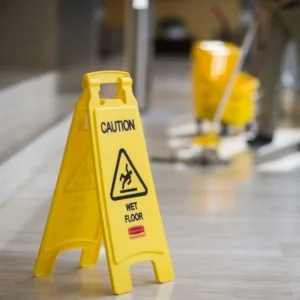June is National Safety Month

Share the Safety Message in June
Now, more than ever, safety is crucial both inside and outside the workplace, which is why the National Safety Council will still be recognizing National Safety Month® in June. Observed annually by NSC, the nation’s leading nonprofit safety advocate, National Safety Month focuses on saving lives and preventing injuries, from the workplace to anyplace.
Given the current state of the world, the month will look a little different than past years. Instead of focusing on a single topic each week, we will provide real-time, relevant resources on a variety of topics for keeping workers safe in our new normal.
This year, NSC will shine a spotlight on pressing topics, including, but not limited to:
- Mental Health
- Ergonomics
- Building a Safety Culture
- Driving
This year’s public materials will include a poster, tip sheets, articles, social media graphics and more! NSC members get everything the public gets, plus 5-Minute Safety Talks, additional posters, videos and so much more.
Work Safety Topics

Nearly 13,000 American workers suffer an injury every day; each is preventable. Injury should never be a cost of doing business. Here are some of the workplace safety topics NSC is focusing on.
Fatigue
Adults need seven to nine hours of sleep each day to reach peak performance, but nearly one-third report averaging less than six hours. The effects of fatigue are far-reaching and can have an adverse impact in all areas of our lives.
- Safety performance decreases as employees become tired
- You are three times more likely to be in a car crash if you are fatigued
- Chronic sleep-deprivation causes depression, obesity, cardiovascular disease and other illnesses
Drugs at Work
Drug use at work is a safety topic that is gaining attention. Lost time, job turnover, re-training and healthcare costs are three of the primary implications of drug use regularly confronted by employers. The typical worker with a substance use disorder misses about two work weeks (10.5 days) for illness, injury or reasons other than vacations and holidays.
- Workers with substance use disorders miss 50% more days than their peers, averaging 14.8 days a year
- Workers with pain medication use disorders miss nearly three times as many days – 29 days
- Workers in recovery who report receiving substance use treatment miss the fewest days of any group – 9.5

Driving
Many employers have adopted safe driving policies that include bans on cell phone while driving and on the job. NSC has created a Safe Driving Kit with materials to build leadership support for a cell phone policy and tools to communicate with employees.
Workplace Violence
Every year, 2 million American workers report having been victims of workplace violence. This violence fits into four categories: criminal intent, customer/client, worker-on-worker and personal relationship (most involving women).
The deadliest situations involve an active shooter.
Every organization needs to address workplace violence through policy, training and the development of emergency action plans. While there is no way to predict an attack, you can be aware of warning signals that might signal future violence.

Slips, Trips and Falls
You might be surprised to learn that falls account for the third-highest total unintentional deaths every year in the United States. Fatalities as a result of falls are surpassed only by poisoning (including deaths from drugs and medicines) and motor vehicle crashes.
Fall safety should be a top priority. Construction workers are at the most risk for fatal falls from height, but falls can happen anywhere, and it is important to recognize potential hazards, both on the job and off. Plan ahead and use the right equipment.
Ergonomics and Overexertion
Overexertion causes 35% of all work-related injuries and is the No. 1 reason for lost work days. Regular exercise, stretching and strength training can prevent injury. Likewise, ergonomic assessments can ward off ergonomics injuries, often caused by excessive lifting, lowering, pushing, pulling, reaching or stretching.
Struck by Objects
While employers are responsible for providing a safe work environment, employees can take steps to protect themselves at work. Paying attention is vitally important for those operating machinery as well as those working around power tools and motor vehicles.
Call Northland Injury Law for Help With Your Work-Related or
If you have suffered a work-related injury or automobile injury, Northland Injury Law can help ensure you get full and fair compensation under the law. The attorneys at Northland Injury Law are experienced in navigating the ins and out of the workers’ compensation and automobile injury processes and their experience can help you with a complicated claim. For a more comprehensive list of all the questions you might have about workers’ compensation or automobile injuries, and for a free consultation, please call (816)-400-4878. If you have further questions about your case, do not hesitate to reach out to us by the phone number, through the contact form, or even with the live chat option listed on our site!







